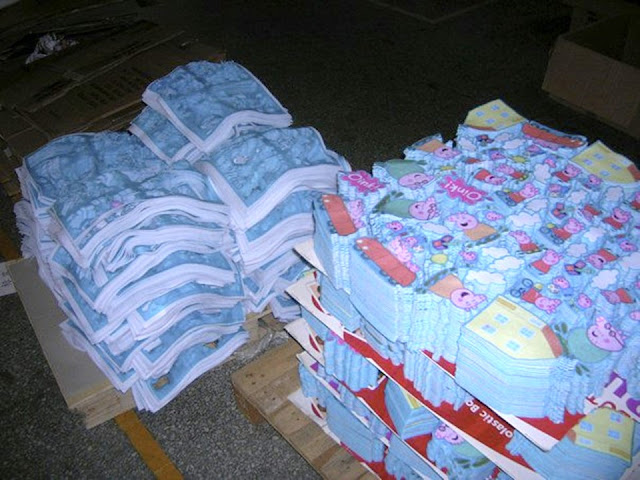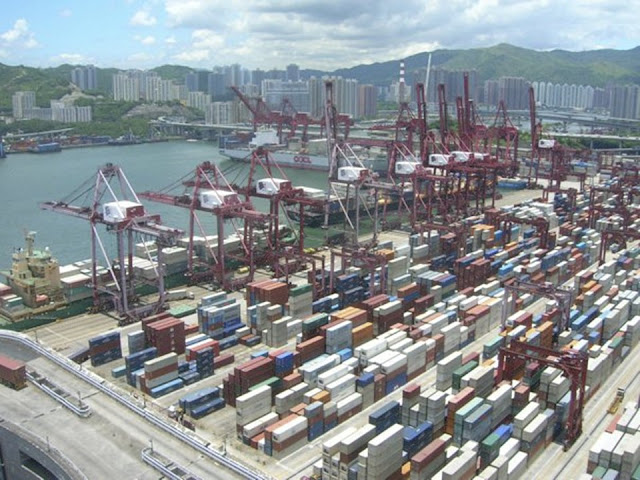Everybody has played a board game at some time in their lives. It might have been something simple like monopoly or clue, but it might have also been something more complex like Dungeons and Dragons. I have some friends who work for a local to Minnesota board game company called Fantasy Flight Games.
At least it used to be a local company, it has now expanded it's reach which has become the norm under our era of strong globalization. Globalization is the processes heightening interactions, increasing interdependence, and deepening relations across country boundaries. This company, like many others in this era, were competing against other companies which would outsource different parts of their production to cut costs. Many companies found out that if they didn't also take similar steps they would be unable to compete. Many companies also wanted to use globalization as an opportunity to expand the range of places they sell to in addition to produce in.

Fantasy Flight Games used to produce and assemble their games in Roseville Minnesota, but they switched to Macau China. You can see some of the walking district here of Macau. If any of you have been to Portugal, you might find the cultural landscape here similar, especially the Roman Catholic Church and the patterns in the sidewalks. That is because Macau is a former colony of Portugal.
Macau: Where the Dice Roll Differently
Now, if you’re thinkin’ “Why Macau?”—well, it ain’t just some random port city. Macau is the only place in China where casinos are legal. That's right. While the rest of the country is folding their cards, Macau’s going all in. It rakes in more gambling revenue than even Las Vegas. And that status as a global gaming hotspot? Well, it doesn’t just bring in tourists—it also means the region knows a thing or two about games, logistics, and high-stakes production. So naturally, it becomes a place where companies like Fantasy Flight Games say, “Ya know what? Let’s build our whole dang factory here too.”
Cultural Ping-Pong: When East and West Play the Same Game
Now here’s where it gets kinda neat. This isn’t just a story about where the plastic bits are made. It’s also a story about ideas. See, for centuries, folks in China have been playin’ games like Go and Xiangqi—games where the point ain’t always to obliterate the other side but to outthink 'em slowly, carefully, like coaxing a fish through the ice. Western designers have started to pick up on those mechanics, blending them into new creations. So what you’ve got is this lovely cross-cultural ping-pong match, where each side’s tossing ideas back and forth across the Pacific, and the games that hit our shelves are the rally.
My friend who works for Fantasy Flight Games took these photos, and he is in no way a professional photographer so you will have to excuse that they sometimes cut off buildings or whatnot. Many cities in China and around the world have pedestrian only areas for shopping or just to spend their free time out and about in the city.
Local Impact: Whose Job is it Anyway?
But here’s the kicker, and it’s one worth chewin’ on. While all this tech and globalization make things faster and cheaper, there’s always a shadow to the light. When jobs shift overseas, what happens to the folks who used to print, pack, or paint those game pieces in Minnesota? Are they gettin’ retrained? Hired elsewhere? Or just told, “Well... best of luck to ya.” It's a hard question. And it’s one we’ve gotta keep askin’, especially as more of our lives—games, groceries, gadgets—float across oceans on shipping containers.



These round things on the ceiling are incense burners. These are just some of the things you would see if you were walking around this area. When Fantasy Flight Games outsourced their game production, they simply took the exact same set up they had in Roseville Minnesota and put it in place there. You can see in these pictures an area where people assemble the board games. As much of the process has been automated as possible as you can see.
In addition to assembling the games in their boxes, there are also design elements that are done in a mixture of in China and still at the base of operations in Minnesota. You can see in these photos the creation and design of some board game pieces. Artists in both areas will work on different figures and they will send images and 3D scans of the pieces as they go.
You can see here in these pictures the plastic molds the pieces are made in.
Here, you can see where the cards that go with the games are printed out. Since they are an international company, they can just switch languages and try to expand the range of their products. That is why you see so many different languages on all of these cards and games.
Playing cards, before a language is put on them.
The hope also in locating your factory in China is the hopes you can get into that huge market.
Here you see many other popular games that they make like simple puzzles, to my little pony, oink, to the less known Cthulhu. They also have the rights for better known games from Star Wars to Lord of the Rings.
Puzzles are very popular internationally.
Some familiar and unfamiliar game pieces?
Here is the factory cafeteria, everybody brings their own teapot.
The hope is that they will also sell in the local Chinese market as there are many potential consumers. This is a board game shop near their base of operations in China. You can run into some problems however, some of these games in the picture are bootlegs which are technically illegal but widely available in China as well as other places. You can imagine how this would hurt sales of your own products if there are copies for sale already and at half the price. Also pictured here, some of the staff going out for lunch.
The hope is local gaming locations will sell your games, but what they found out happening was lots of bootlegs or fake versions of their games were also for sale. As you can imagine, this makes people question if they can really get into the Chinese market if fakes are coming out that are less expensive than your real deal?
China has a huge share of international manufacturing, as you can see here from the shipping area.
So many shipping containers cross the ocean for distant lands.
These very last photos are just of the hotel my friend was staying in when he was there, I honestly think he was just trying to show off and it worked.






















































No comments:
Post a Comment